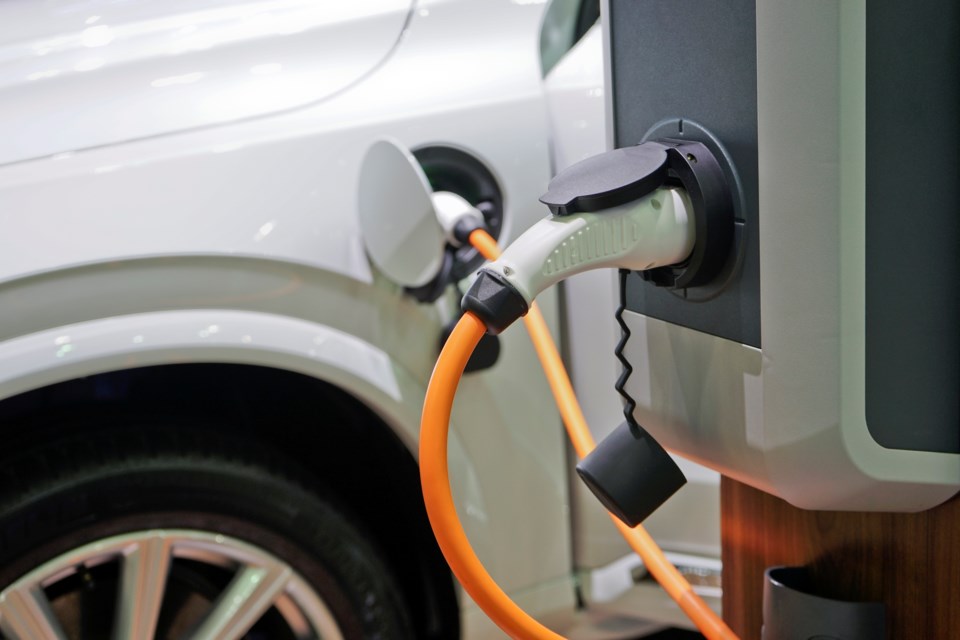Vancouver’s idea to gouge gas stations $10,000 annually if they don’t install electric vehicle chargers is one of the sillier schemes in memory.
The city staff’s theory that a zippy in-and-out gas station is the ideal place for a relatively slow EV charger is rather like sanctioning a reading room at a nightclub, placing a chess table at an e-sports event, ordering sous vide at a burger joint or convening a knitting society at a fashion runway.
A gas station about the last place I’d like to linger as my EV slowly but surely restores its battery. The whole point of recharging an EV is that you don’t want to hang around when it does.
Only Â鶹´«Ã½Ó³»posits that an EV owner might wish to spend time amid the bargain-priced sports drinks and potato chip varieties under the fluorescent lights, and only Â鶹´«Ã½Ó³»believes that a business that has no interest in getting into the EV charging world must pay the price to do so or pay the price for not doing so.
Rather than commit to create the necessary and extensive infrastructure itself or in conjunction with other public or private interests, the city is mulling a bylaw change that would compel gas stations by 2025 to foot the bill or face the $10k fine. It’ll come up for a public hearing May 19.
It’s a sly way to run more gas stations out of the city or, more likely, a sound way to grab more cash.
Even today’s expensive fast chargers move at the speed of filling a gas tank with teacups. The slower chargers are like filling them with a thimble. The technology is bound to improve, but the city’s 18-page examination of the idea, premised on today’s early-adopter model, is anything but upbeat for vendor and buyer alike.
Its business model for the concept projects a $136,000 investment by 2025 for a typical gas station that would yield a whopping $6,000 profit by 2030 – a profit that banks on an increase in the convenience store sales as EV owners twiddle their thumbs.
Based on its surveying of the local scene, the city estimates a 30% uptake in the idea, hardly an embrace of the proposal but heartily an embrace of tax revenue for the city: more than $1.65 million would flow into the coffers from gas stations and parking lots.
Ah yes, parking lots – there, one can find a smarter plan.
Parking lots are terrific locales for charging because you’re leaving your vehicle awhile. About the only trouble is that some people park and walk away for the day, hogging the scarce stations. The four-hour charging maximum in many parking lots is a good idea, and considering the limited number of stations at the moment, I’d be open to the idea of ticketing EV owners if they overstay. It would help, too, if the tariff wasn’t as steep.
Shopping malls are excellent places for charging stations because their installation costs can be amortized across a lot of outlets. Restaurant parking spots can play a big role, too, because you’re rarely in one for less than an hour.
Community centres, golf courses, arenas, medical clinics, movie theatres, supermarkets – all offer one form or another of a leave-behind charge.
A gas station, hardly so. The very point of a gas station is to get your fuel and run.
The deals on energy drinks and chips might be profit centres, but they’re not the reasons people come, and placing EV chargers – even the speediest ones – are not going to be reasons to stay.
The cost to drive the compact Hyundai Kona EV is about $1.72 per 100 kilometres in British Columbia, given hydro rates; even a small gas-powered car like the Honda Civic is $10.74.
But the entry fee to get to that cheaper power remains an obstacle. EVs are costly, even with subsidies, even if their maintenance is a fraction of a gas-powered vehicle, and the lack of charging stations is another reason why the typical consumer is still skeptical about switching to them.
Range anxiety is real when you can’t find an available charger. Few of us have beefy outlets to plug in Level 2 chargers and quite a few don’t have a driveway to plug Level 1 chargers into a basic household outlet overnight. Something major needs to happen if EVs are to become a major thing to happen, and it’s not heaving more overhead on a gas station.
Streetside infrastructure is a challenge Â鶹´«Ã½Ó³»could have anticipated five years ago. With any studying of the situation when EVs emerged, the city wouldn’t have taken out so many parking meters and simply converted some of the stands to charging stations. Now we have the worst of all worlds: new meters that won’t take cash, won’t permit bikes to be hitched and won’t serve as pillars for a charger.
Leave it to the City of Â鶹´«Ã½Ó³»to devise a ham-handed way to encourage technology and a cleaner atmosphere. Let’s hope the idea is, figuratively, left at the curb.
Kirk LaPointe is publisher and editor-in-chief of Business in Â鶹´«Ã½Ó³»and vice-president, editorial, of Glacier Media.



